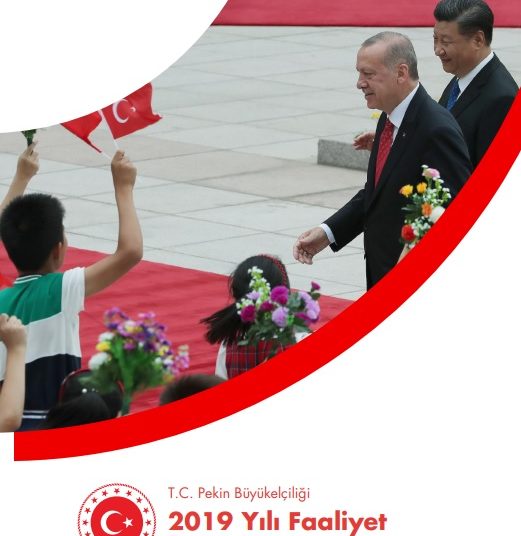Nordic Monitor
The 2019 annual report of the Turkish Embassy in Beijing, released by Ambassador Abdulkadir Emin Önen on Twitter, fails to include any information on the situation of the Uyghurs in China while trumpeting several high-level visits and intensified and diversified bilateral Turkish-Chinese relations.
The annual report revealed that Ambassador Önen, a former advisor to President Recep Tayyip Erdoğan, had 300 meetings with Chinese officials not only in Beijing but also in various Chinese cities including Xiamen, Shenzhen, Guangzhou, Xi’an, Shanghai, Chengdu and Hong Kong in 2019.
However, the report exposed the fact that Ambassador Önen didn’t visit Xinjiang province, home to millions of Uyghurs who have continued to suffer from a decades-long crackdown by Chinese authorities and are reportedly subjected to inhuman treatment, and that he did not deliver any démarche to raise the issue with Chinese officials in Beijing.
According to the report, the embassy coordinated the official visits of 56 high-level Turkish delegations last year in order to improve economic, military and cultural ties between Turkey and China. But the report does not contain any details as to whether or not those delegations visited camps where more than a million Uyghurs are reportedly detained or brought the issue up in the political consultations.
China calls the camps voluntary “vocational training centers,” which it says fight Islamic radicalization by reeducating residents. But human rights groups claim they are forced labor camps and that detainees are sent there without trial or the possibility of release.

The annual report provides detailed information about President Erdoğan’s official visit to China in July 2019. Following his meeting with Chinese President Xi Jinping on July 2, 2019, the Turkish president said he believed it was possible to “find a solution to this [Uyghur] issue that takes into consideration the sensitivities on both sides,” CNN International reported.
“I believe there is great potential for strengthening the cooperation between Turkey and China, which are built on ancient civilizations connected by the Silk Road and have relations dating back thousands of years. The ‘One China’ policy is of strategic importance to Turkey,” President Erdoğan said prior to the meeting between the delegations.

For decades Turkey has assisted and defended Uyghurs, who share many cultural and linguistic traits with Turks and are seen as ethnic brethren by Turkish nationalists. But Turkey’s ruling Justice and Development Party (AKP) has changed this policy in recent years and deported several Uyghurs to China. Moreover, as international condemnation increases over China’s crackdown on Uyghurs in Xinjiang province, Turkey has remained silent due to China’s economic and political influence. According to the Turkish media, Ankara has been quietly deporting small numbers of Uyghurs, and more than 1,000 Uyghurs are currently in jail in Turkey. This number could increase following ratification of an Turkey-China extradition agreement by parliament.
Moreover, the Turkish government last October refused to join 23 nations in joint a statement calling on China to end violations against its Uyghur minority. Following pressure from the AKP’s nationalist coalition partner, the Nationalist Movement Party (MHP), the Turkish Foreign Ministry had to call on China in February to stop the crackdown on Uyghurs and close the camps in Xinjiang.

Nordic Monitor previously disclosed the Turkey-China extradition agreement that was signed during President Erdoğan’s visit to Beijing to attend the Belt and Road Forum for International Cooperation on May 13, 2017. President Erdoğan then submitted the extradition accord to the Turkish parliament for ratification on April 12, 2019.
The text of the agreement, obtained by Nordic Monitor, contains ambiguous phrases that might trigger the extradition of scores of Uyghurs from Turkey and violate extradition mechanisms regulated by international conventions.
2019 annual report of the Turkish Embassy in Beijing:












